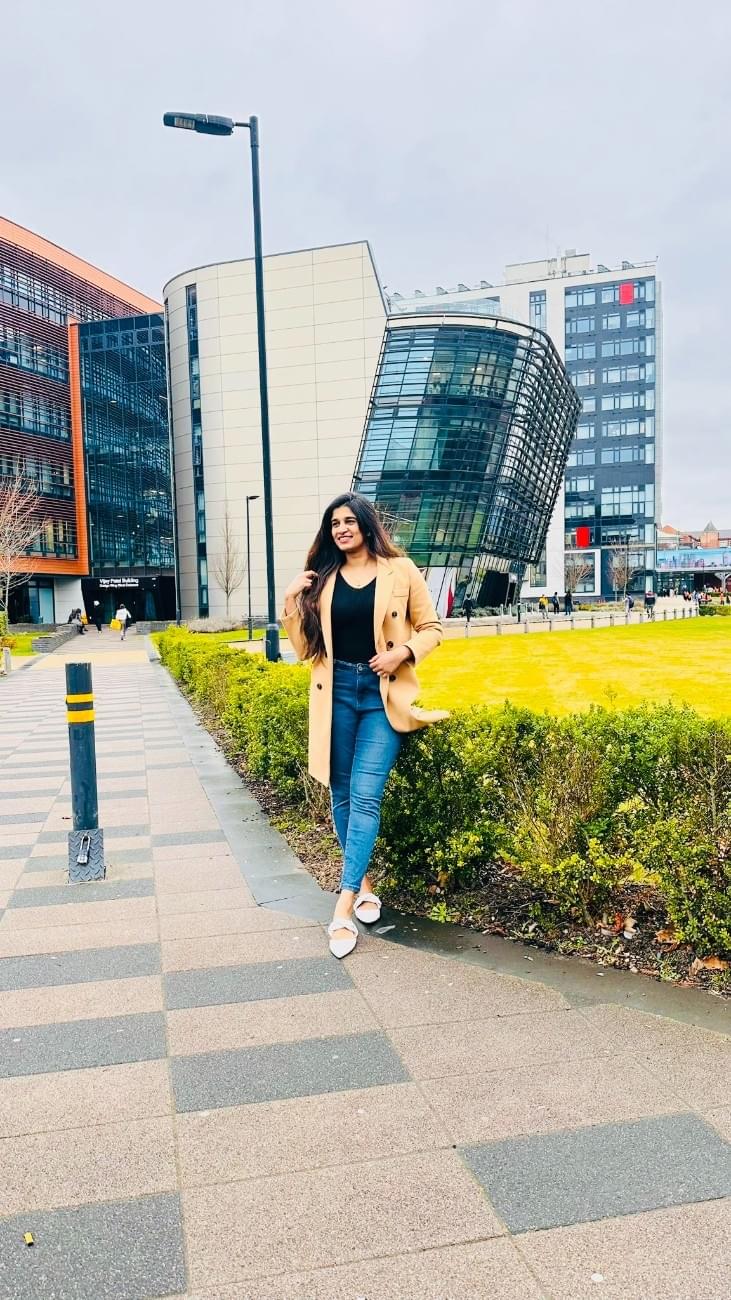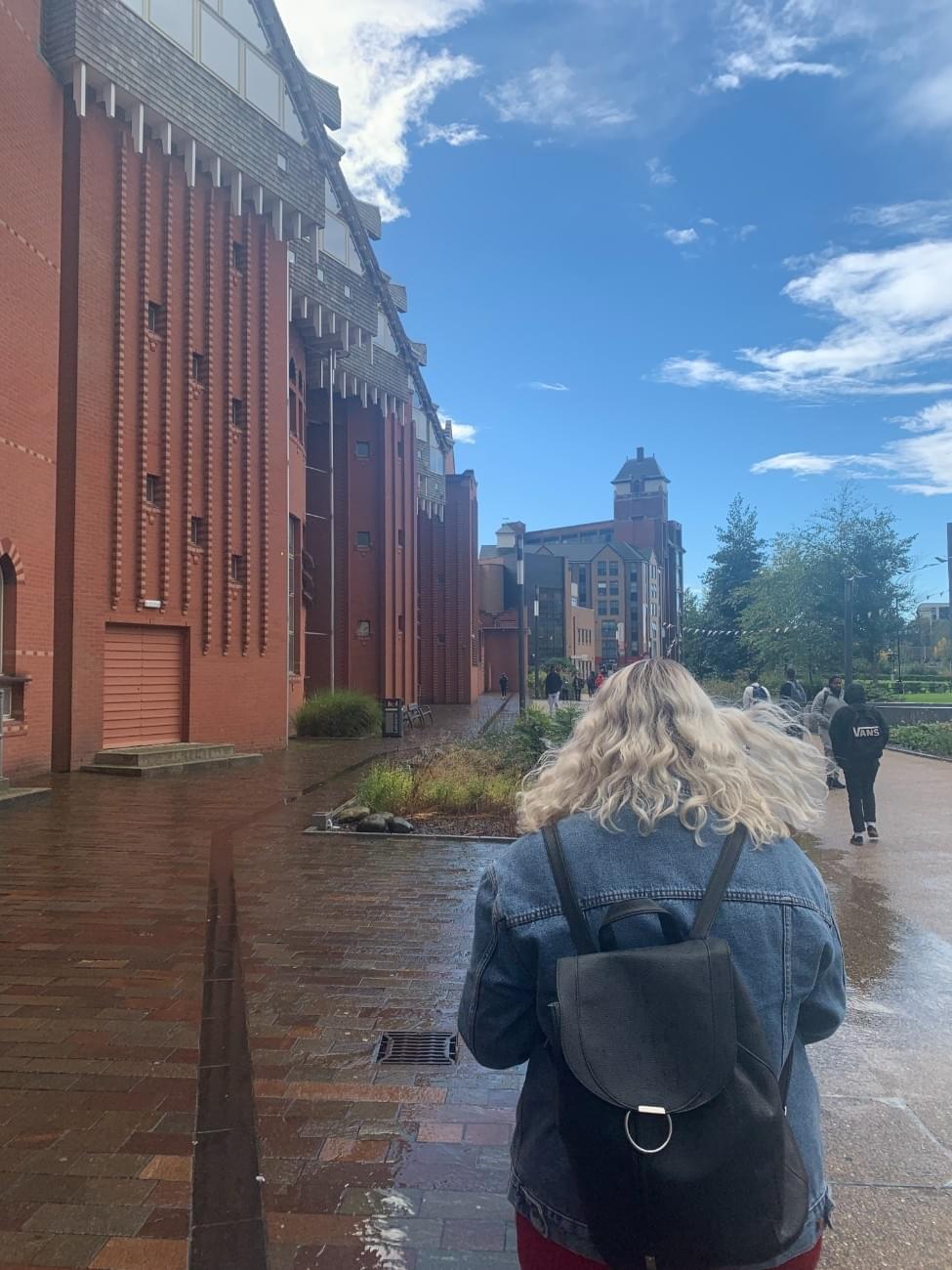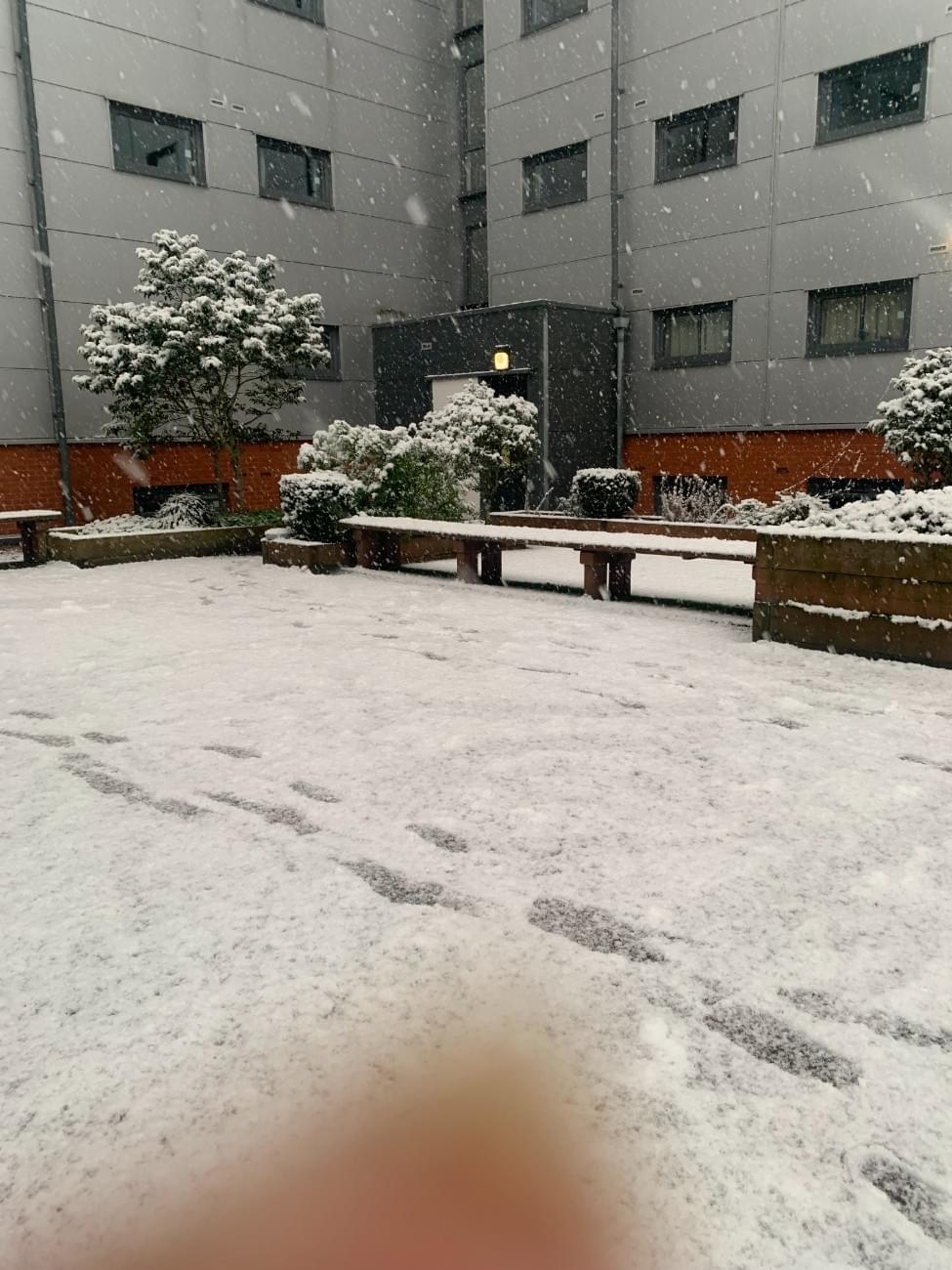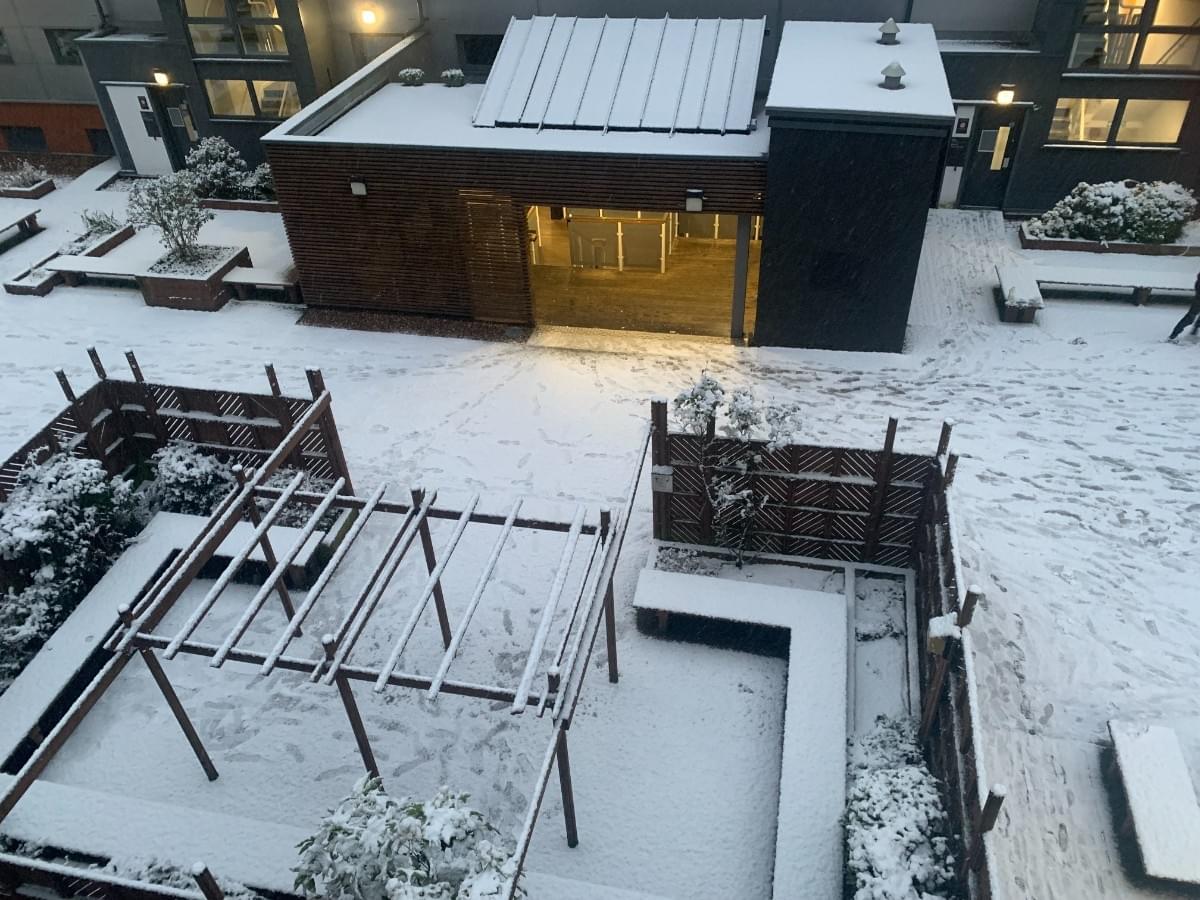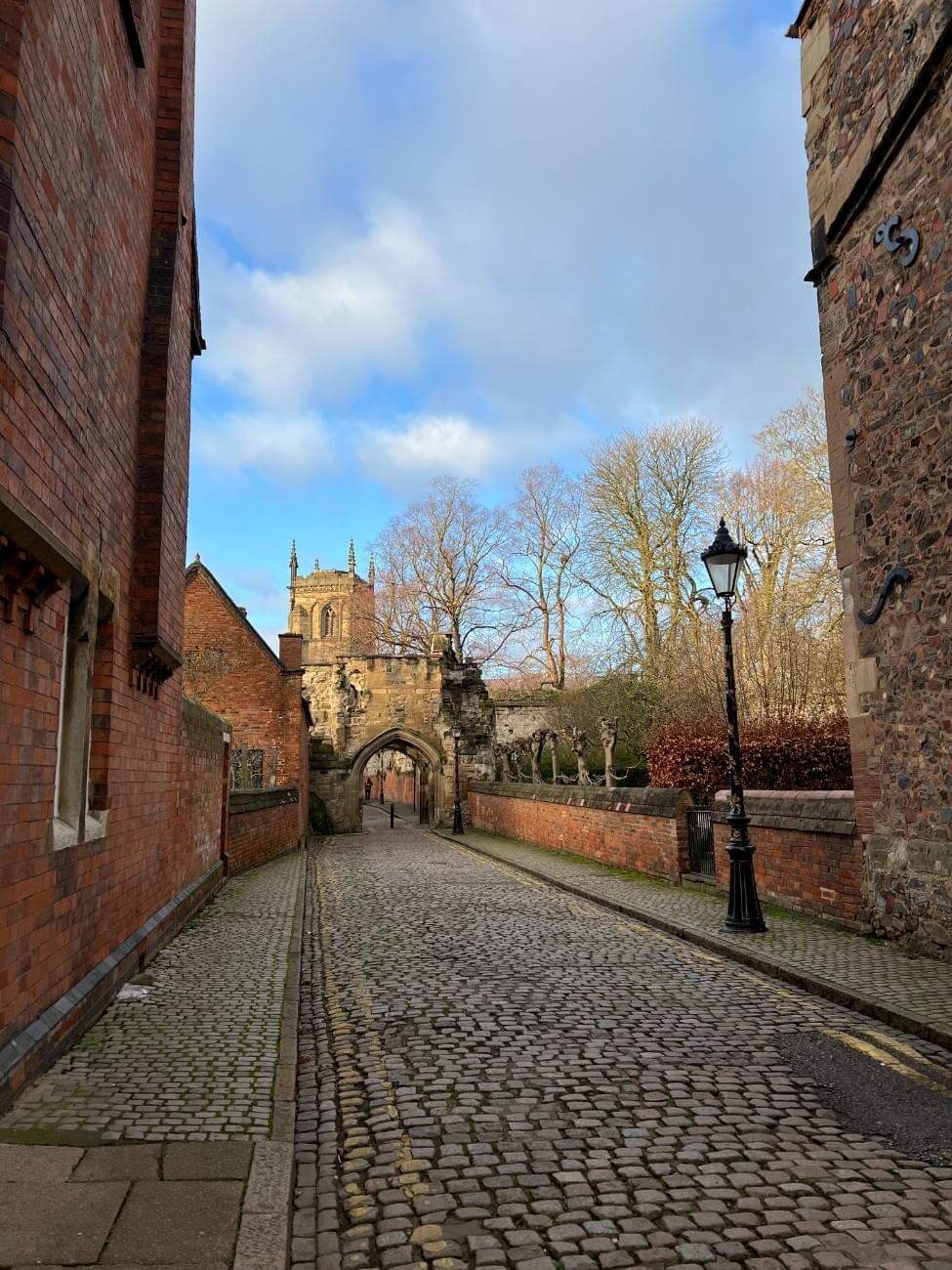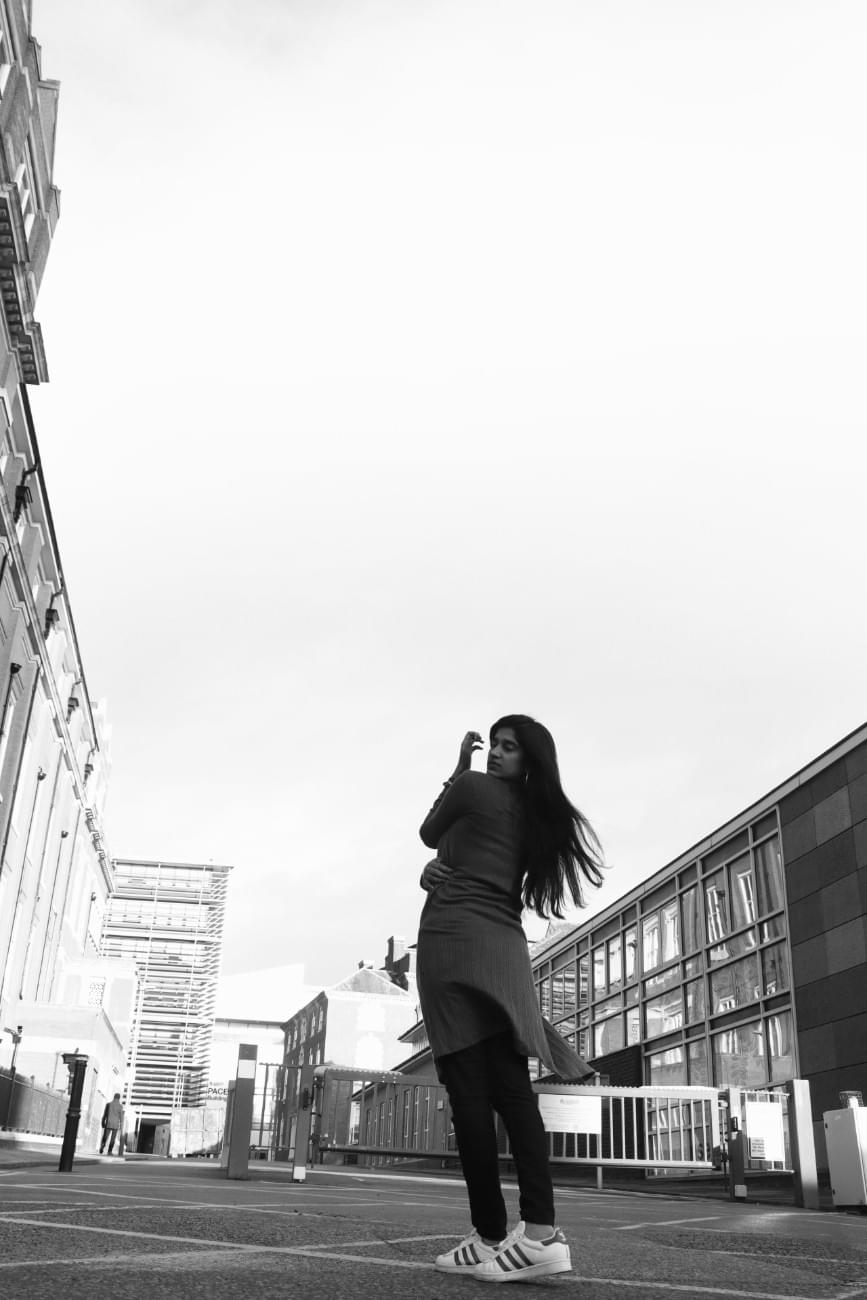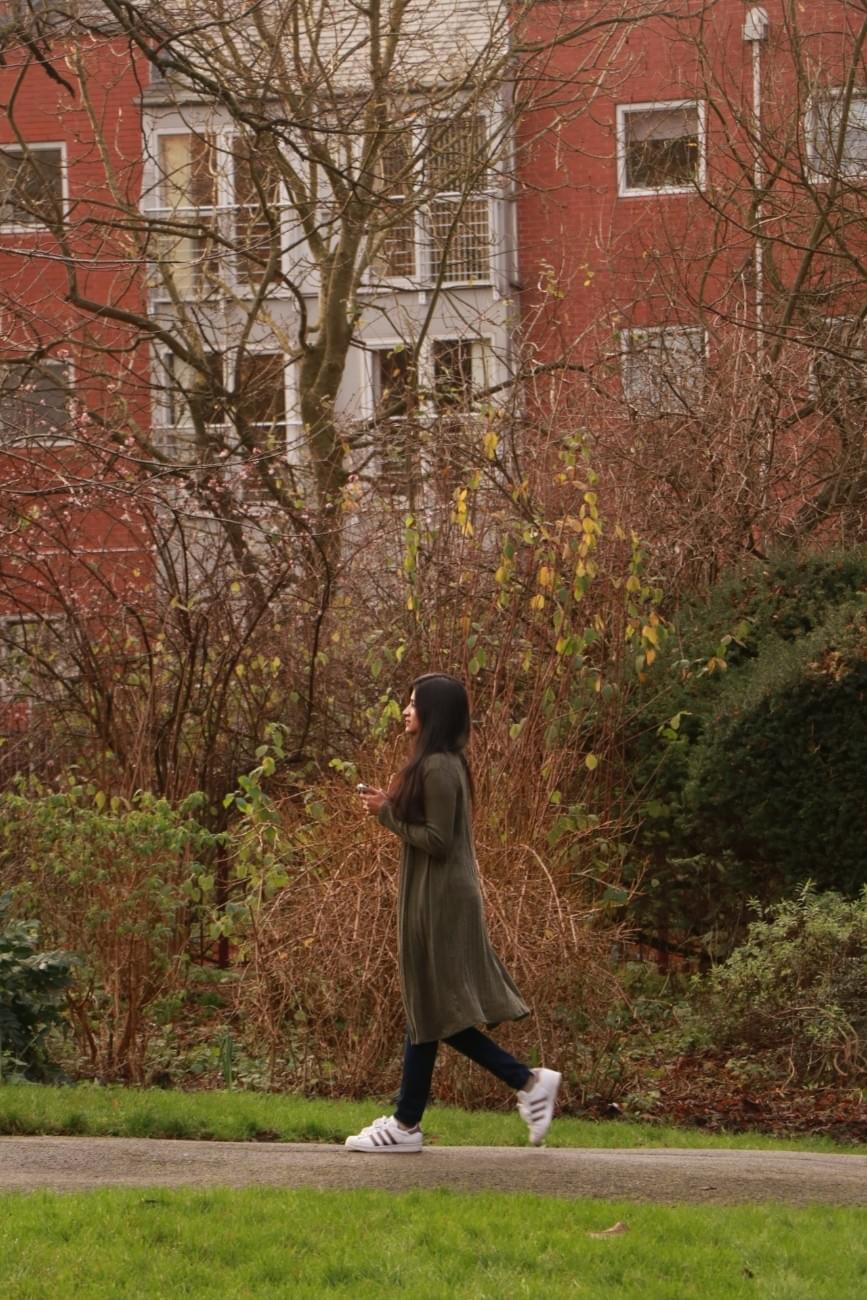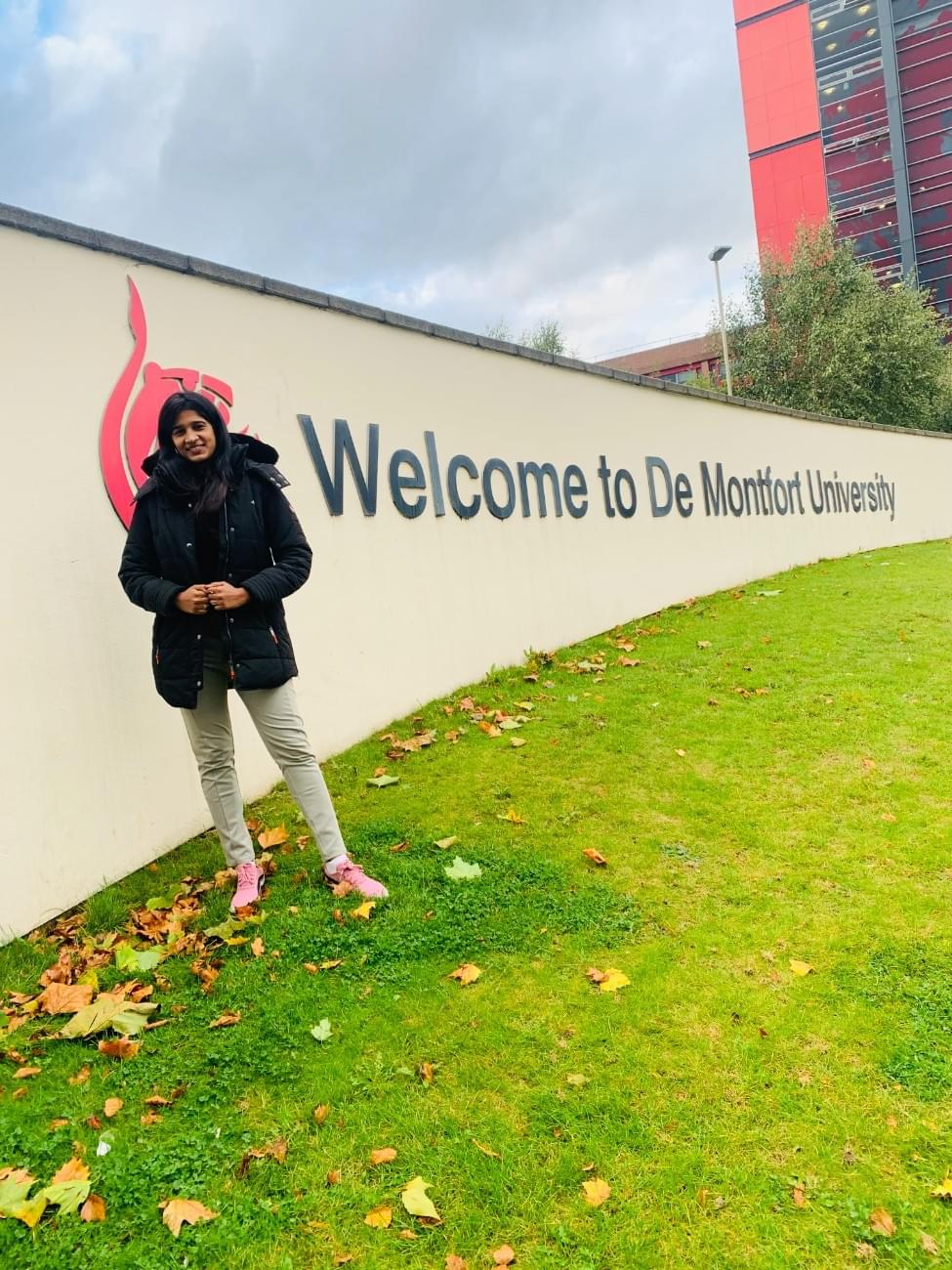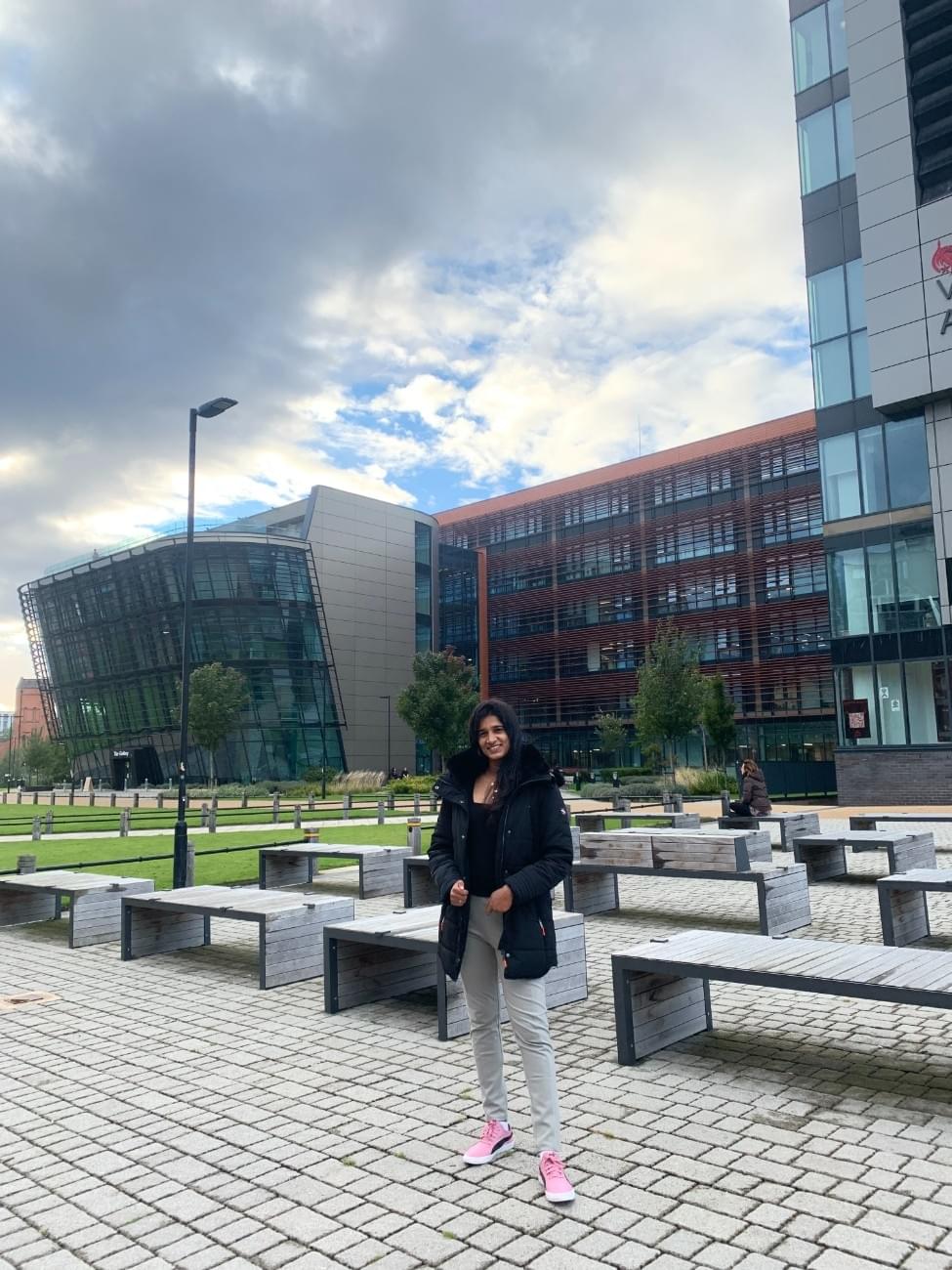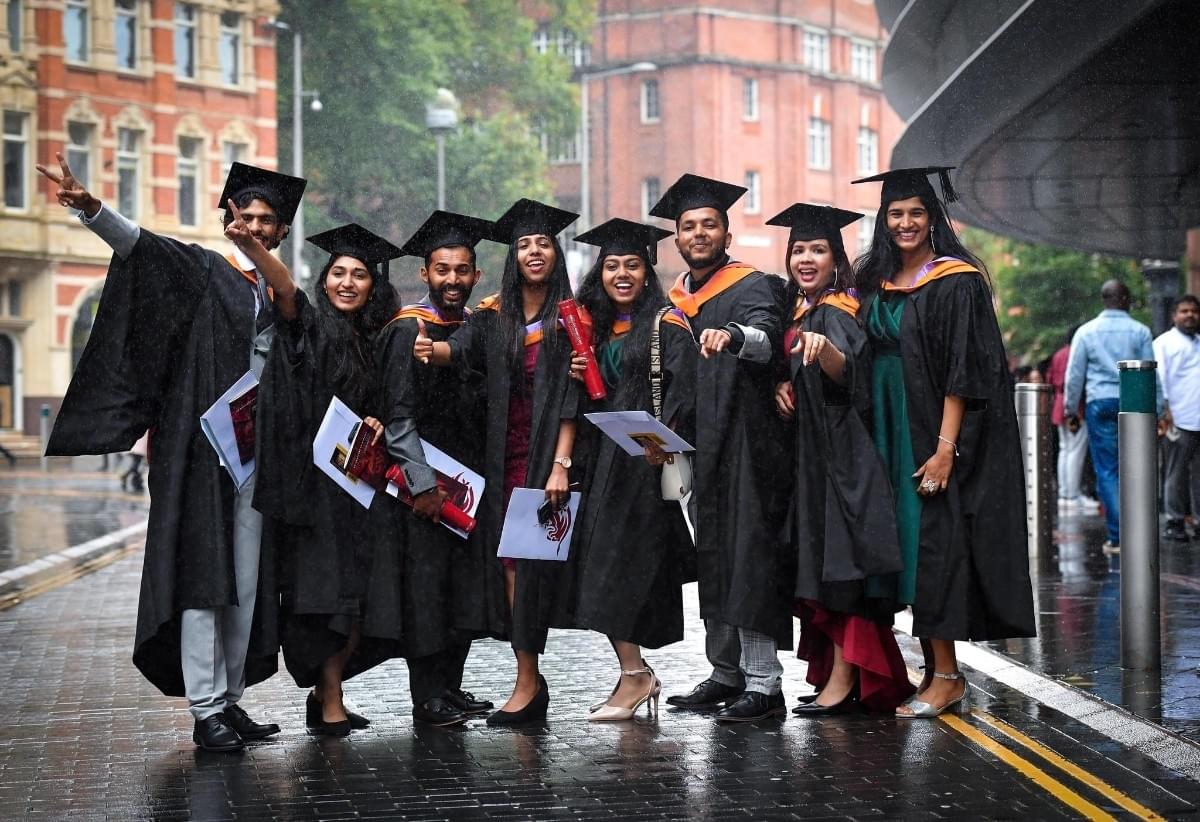What Students Say
Likes
- Modern facilities- library, labs, lecture halls everything was perfect, student friendly
- Outstanding Career support- CV workshops, placement support were offered by DMU
- Diverse Community- I was able converse and learn about different community, knowing their perspectives- making DMU an inclusive and global learning environment.
Dislikes
- Administration- I faced a bit of delay with official processes(documentation, visa letter)
- Accommodation cost- housing around campus was a bit expensive.
- Outdated Portal- university system (blackboard) felt outdated, downtime was there, not user friendly.
Course Curriculum
- IELTS is required; english marks from the 12th standard were also fine, but IELTS is much better—it makes the process easy.
- The documents that are necessary are a statement of purpose, LOR, CV, BANK statements for 3 months that show there is sufficient money in the account, affidavit, and passport copy.
- There was an interview where a person feom DMU conducted it asked me basic question like why do I want to study the course, why do I want to switch feom engineering to management, what do I know about DMU, what do I know about the place leicester, where are the nearby airports, how are you planning to stay, etc.
- I loved the way the interview was conducted; it really motivated me to join there. Their questions were on point.
Admission Experience
- I applied for the following universities:
- De Montfort University – Admitted, Leeds University – Admitted, East London University – Admitted, King's College London – Rejected, Kingston College – Rejected
- I received confirmed admission from DeMontfort university, leeds, London.
- Yes, Kings college London and Kingston College
- I was not accepted for both the colleges, as I didn’t have work experience, which was required for the course I applied for.
- Even though I received offers from several universities, I chose De Montfort University because it offered better academic quality, industry-focused teaching and student communities.
- First I took IELTS exam and then I applied through an agency to DMU, selected my preferred course and then uploaded the required document transcripts, statement of purpose, reference letter and IELTS result document after that, once the initial review is done conditional offer is sent, and then once i pay the required tuition fee depositc my place in the course is secured and the university issue CAS letter
- Once I received it, I applied for my tier 4 student visa and submitted biometric data and waited for approval. Meanwhile, I arranged my accommodation, and then I received my visa. After reaching the UK, i collected BRP from the post office, got my student ID and attended the classes.
- Eligibility criteria – IELTS 6.5 and above
- Overall experience was good; the only issue I had was with the waiting time, other than that, it was smooth, the staff were helpful and onboarding was easy.
- I applied for the September intake and I really wanted to get an MBA from abroad, as I’ve heard from many that we get more exposure, can learn from people from different countries and different cultural backgrounds, and also get better practical experience.
- I started my application process in March – i gave my ielts first and then applied for the college in april and then I received my conditional offer letter in may and then I received my cas in July
Faculty
- Faculty to student ratio was balanced in most modules: 1 lecture for over 30-35 students. The ratio was fair, as there was personal attention during feedback sessions, presentations and project guidance. Professors were accessible through emails as well.
- Teaching was a blend of interactive seminars, lectures, group discussions, presentations and case studies. Real-world business scenarios were discussed in most classes. However, to secure a job, especially in the UK, we need to do other certifications, internships and networking. An MBA gives an academic base; getting a job requires a bit of self-initiative.
- Faculty members were supportive, but job placements and references were not directly given.
- Some faculty members take an effort to give more insights about the job market in UK which was really helpful post-MBA.
Campus Life
- De Montfort has 2 main campuses: Leicester city campus and Scraptoft campus
- Facilities are Library: Kimberlin Library (24/7 access, study zones, digital resources); for sports: QEII Leisure Centre (gym, pool, sports hall); then they have Beaumont Park; and for Medical & Wellbeing: Mental health support, counselling, multifaith rooms, and welfare services are available.
- The activities that take place are the Cultural Exchanges Festival, Freshers Week Welcome Festival, Themed student nights & fairs by the Students union.
- We also have 150+ student clubs and societies, Competitive and recreational sports teams, Student media, Art shows, fashion events, and creative exhibitions.
Part Time Jobs
- Usually these roles are competitive and limited and depend on faculty budgets and research projects and I believe not more than 10 people get them.
- Usually they pay around £11.90 to £12.80 per hour.
- Other on-campus roles that are very competitive as well are clerical/payroll support, student ambassador, bar & venue supervisor, event staffing, research support, hospitality, etc. There are some Students Union roles via DSU such as in bar, venue, tech assistant, student trustee, etc. Usual wage range is £11.90 to £12.80 per hour.
- Maximum hours of work allowed per week is 20 hours
- It's quite difficult to get on-campus roles due to high competition, the lower number of roles, etc.
- Students typically earn £11.90 to £12.80 it will go higher as well. starting is £10-£11, and then it's easy to get part-time employment while studying. On-campus jobs are a bit difficult but off-campus jobs in retail or hospitality are common and easier to secure. Search jobs on indeed, dmu portal, linkedln, different agency sites, nhs portal etc.. Prepare and submit cv and letter, apply online through job listing platforms, attend interview and complete onboarding paperwork once selected.
Placement
- Around 95% of them secure a job within 6 months of course completion.
- The average salary range that can be expected is between £27,000 and £38,500.
- After graduation students usually find jobs with the help of 1. Recruitment & Career Fairs—DMU hosts annual fairs with employers like HSBC, KPMG, Microsoft, IBM, Rolls-Royce, NHS, BBC, Deloitte, BMW, etc., and then also using 2. Networking & Alumni, Using DMU alumni connections, industry contacts, mentoring and events. Also through 3. Online Portals Applications via DMU Careers Portal, job boards, and external platforms like LinkedIn, naukri, indeed etc.
- Major companies that hire are EY, DELOITTE, PWC, KPMG, BARCLAY BANK, LLOYDS BANK, HSBC BANK, TESCO, SHELL etc
Accommodation
- I found my accommodation through the online platform Uni homes. I also joined telegram and WhatsApp groups for DMU students.
- Monthly rent was 450-480 pounds, and it included all bills, a furnished room with a bed, desk and wardrobe, and a shared kitchen and living area. It also had washing machine and microwave as well
- The only challenge i faced was high demand during intake season—rooms were getting booked pretty quickly
- I would recommend students to start searching early, getting into whats app telegram groups, finding people and taking a full house for rent- this way the rent would be much lower. Always ask for a virtual tour of accommodation.
- My accommodation was just a 6-8 min walk from the university. Most indian students prefer areas like Newarke close, filbert village, Upperton road, western boulevard, bede island and these locations are close to university and have grocery stores and restaurants nearby
Exams
- IELTS is required; english marks of the 12th standard were also fine, but IELTS is much better- makes the process easy.
- The documents that are necessary are a statement of purpose, LOR, CV, BANK statements for 3 months that show there is sufficient money in the account, affidavit, and passport copy.
- There was an interview where a person feom DMU conducted it asked me basic question like why do I want to study the course, why do I want to switch feom engineering to management, what do I know about DMU, what do I know about the place leicester, where are the nearby airports, how are you planning to stay, etc.
- I loved the way the interview was conducted; it really motivated me to join there. Their questions were on point.
Fees
- Full fees: £16,500
- Accommodation (ensuite): £480 pw
- fee structure depends on how we choose it; I chose yearly
- Monthly expense - accommodation: 1920
- Food—300-500 pounds
- Transportation – 100 pounds
- Regular expense: 100-200 pounds
- It depends on each individual; if we share a house with friends, rent will be much cheaper—monthly it can go down to 300-400 pounds; other expense can be mostly similar
Scholarship
- Yes, I received a scholarship; as I paid my fees yearly, I got a fee waiver of 2000 pounds
- Some of my batchmates received same amount and also some received 1000 pounds according to the initial fees what they decide to pay
- In my course an average of 40 students got the scholarship and the scholarship vary from 500 to 2500 pounds
- In other courses there are more scholarships available according to merit.


